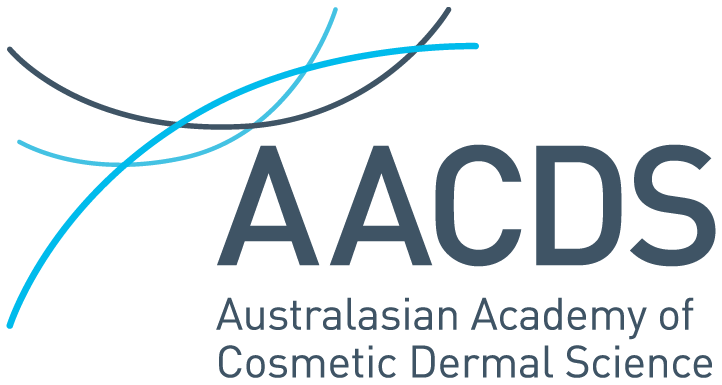Melasma Awareness Month

Did you know the month of July is Melasma Awareness Month? As a Dermal Therapist, Dermal Clinician, Cosmetic Nurse or Cosmetic Physician, it’s important to embrace this month and help spread the word! Melasma is a common skin disorder characterised by patchy brown discoloration on the skin [1]. It’s often referred to as the “mask of pregnancy” as it frequently affects pregnant women [2].
Symptoms of melasma include discoloration and hyperpigmentation, commonly appearing on the face, at the centre, cheekbones, jawbone, upper lip, chin, forehead, and nose [1].
The causes of melasma are not entirely known, but it can be triggered by factors like pregnancy, increased levels of progesterone and melanocyte stimulating hormone, uncontrolled sunlight exposure, hormone replacement therapy, and genetic predisposition [1].
Diagnosis for melasma is usually done by visually examine the skin appearance. A woods lamp examination and skin analysis machine are used to diagnose mixed melasma, and a skin biopsy is rarely done to exclude other causes of discoloration [1].
Treatment options for melasma include sun protection and skin lightening creams [3]. Medications are applied on the brown patches twice a day [4]. Laser therapy is also used to remove the dark marks on the skin [1].
In the field of aesthetic medicine, various treatments are employed to manage melasma.
- Topical treatments: These may help fade dark patches and include hydroquinone, tretinoin, and azelaic acid cream. Other effective active ingredients include kojic acid, vitamin C, and tranexamic acid. Topical agents such as hydroquinone, which is considered the gold standard among prescription skin lighteners [1].
- Chemical peels and microdermabrasion: These procedures can improve skin texture by removing the outermost epidermal layer of skin [2, 4].
- Laser and light therapies: Intense pulsed light or fractional ablative lasers can improve melasma by selectively destroying unwanted melanocytes in the skin [2, 4].
- Oral tranexamic acid: This is a proven effective treatment in the right patients [1].
While these treatments can significantly improve the appearance of melasma, results may vary among individuals and frequent relapses are common [2, 4]. Therefore, a comprehensive approach combining medical treatment and lifestyle modifications, such as diligent sun protection, is often recommended in aesthetic medicine for managing melasma [2, 4]. It’s important to note that treatment results vary by individual. Melasma caused by pregnancy, birth control pills, or hormone replacement therapy usually disappears a few months after birth or stopping hormone therapy [4].
July is recognised as Melasma Awareness Month to educate the public about this common skin condition, its causes, treatments, and prevention [5, 6]. This initiative aims to spread awareness about melasma, which affects millions worldwide, and to introduce the latest treatments available [5, 6]. The focus is on empowering individuals with knowledge, thereby enabling them to seek effective solutions and improve their skin health [6]. It’s also a time to highlight the importance of sun protection, as unprotected sun exposure can lead to conditions like melasma [1].
Interested in Learning More About Melasma?
The Australasian Academy of Cosmetic Dermal Science offer a range of qualifications and Professional Certificates to enhance your understanding of Melasma and many other dermatologic and cosmetic conditions.
Qualifications:
- Advanced Diploma of Cosmetic Dermal Science (undergraduate)
- Graduate Diploma of Dermal Science (postgraduate)
- Graduate Diploma of Cosmetic Nursing and Injectables (postgraduate)
Professional Certificates:
References
- The Australiasian College of Dermatologists. Melasma. 2023 [cited July 2024; Available from: https://www.dermcoll.edu.au/atoz/melasma/.
- Dermatology Clinics Australia. Melasma. 2024; Available from: https://dermatologyclinics.com.au/condition/melasma/.
- Dermatology Times. POLL: What Treatment Approach Do You Find Most Successful for Improving Melasma? 2024; Available from: https://www.dermatologytimes.com/view/poll-what-treatment-approach-do-you-find-most-successful-for-improving-melasma-.
- Harvard Health Publishing. Melasma: What are the best treatments? 2024; Available from: https://www.health.harvard.edu/blog/melasma-what-are-the-best-treatments-202207112776.
- Aestha. What is Melasma and Why Does it Occur? 2024; Available from: https://aestha.co.uk/melasma-awareness-month-everything-you-need-to-know/.
- The Face Lab. Understanding Melasma: Melasma Awareness Month. 2024; Available from: https://www.thefacelab.ca/understanding-melasma-melasma-awareness-month.
Got a question?

